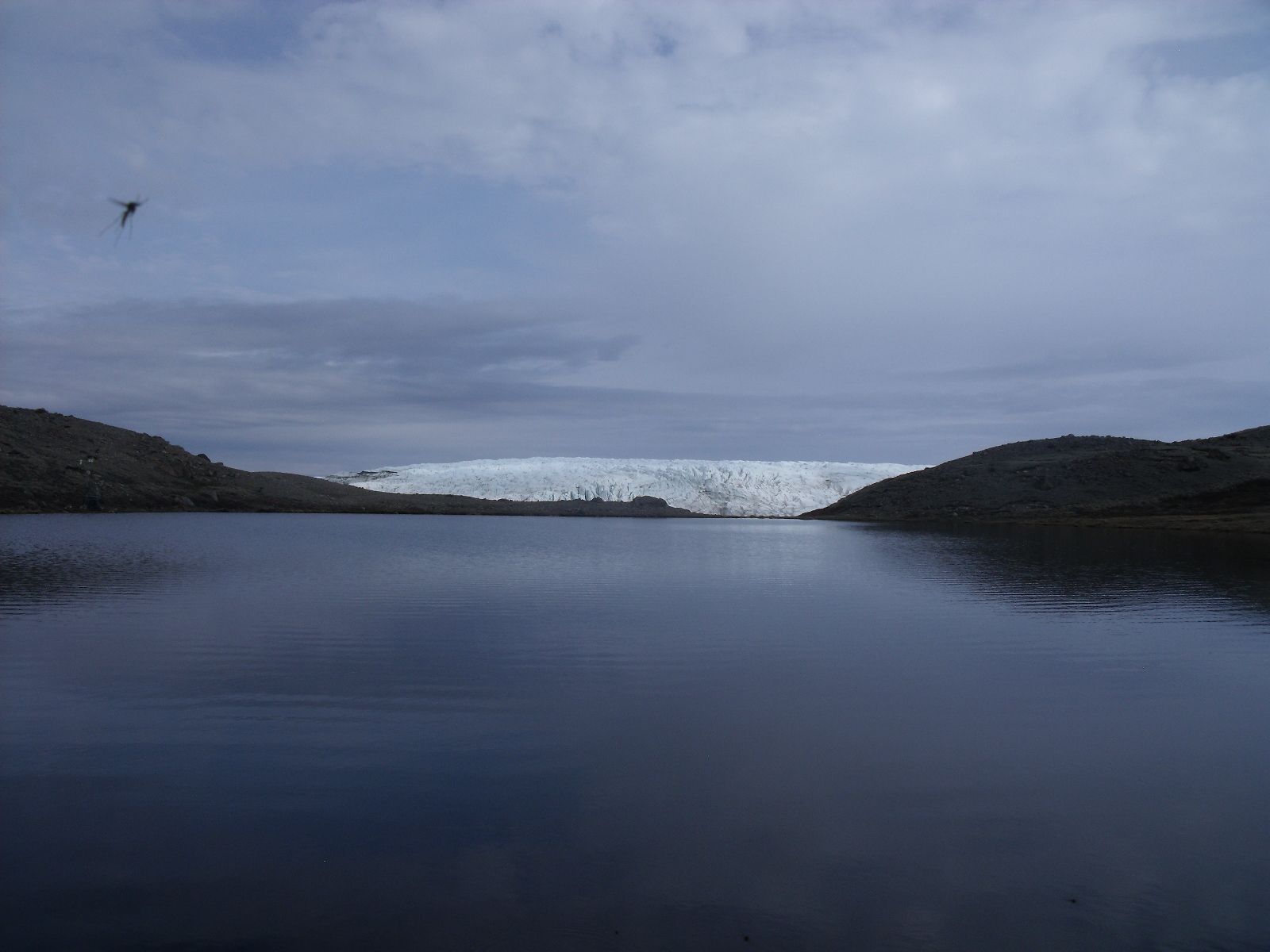
Researcher Lauren Culler has spent much of the past seven summers doing research in Greenland, measuring, among other things, the impact of climatic conditions on mosquitoes. During a particularly warm spring in 2012, the ice thawed and mosquitoes began to emerge two weeks earlier than the previous year.
Although such year-to-year fluctuations can naturally happen, it got her thinking about how mosquito populations may be affected in the future by climate change, which is especially noticeable in the Arctic regions; for example, temperatures across Alaska increased by an average of 3.4 degrees Fahrenheit over the last 50 years.
So Culler, a biologist at the Dartmouth Institute of Arctic Studies, created a computer model to predict how these bitey insects would respond to a 3.8 degree Fahrenheit rise (2 degrees Celsius) in global average temperatures by 2100, which the Intergovernmental Panel on Climate Change considers to be on the low end of expected increases if carbon emissions aren't significantly reduced. And the warming in the Arctic is supposed to be even greater, Culler says.
Turns out, they would probably like it. A lot. A study describing the work of Culler and her colleagues, published September 15 in the journal Proceedings of the Royal Society B, suggests that such a rise in temperatures would lead to a 53 percent increase in the population of adult mosquitoes.

And that's probably bad news for caribou, a large mammal upon which the insects feed and which have no way of protecting themselves. Mosquitoes have been shown to drive harassed caribou away from the plant-rich areas where they need to feed, and onto snowpacks or windy hilltops where they can avoid the insects, Culler says. That could prevent the caribou from reproducing, as they need to frequent the moist, vegetation-covered areas where mosquitoes are often found to eat while they reproduce and nurse their young calves.
This could be a big problem if mosquitoes begin to emerge earlier in the year, around the time that caribou calve, which the study predicts could happen in the future. That's because warmer water temperatures allow mosquito larvae to develop more quickly.
More mosquitoes would also be annoying for human residents of the Arctic, Culler says. Although none of the species found there can spread disease, it's possible that warming could allow disease-carrying mosquitoes to spread northward, she adds.
The warmer water also increases the abundance and activity of predators that eat the insects' larvae, like beetles—but not enough to keep mosquito populations in check. "The increase in predation rates is insufficient to match the faster development rate of mosquitoes leading to an overall improved survival rate of mosquitoes under warmer temperatures," says Toke Høye, a researcher at Aarhus University in Denmark who wasn't involved in the study.
Uncommon Knowledge
Newsweek is committed to challenging conventional wisdom and finding connections in the search for common ground.
Newsweek is committed to challenging conventional wisdom and finding connections in the search for common ground.
About the writer
Douglas Main is a journalist who lives in New York City and whose writing has appeared in the New York ... Read more





